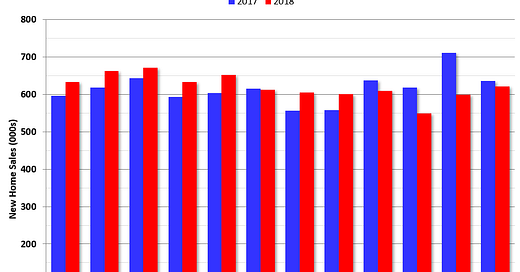Will 4% Mortgage Rates "Halt the Housing Market"?
Some comments on an interview with Ivy Zelman
On Friday, CNBC’s Sara Eisen interviewed housing analyst Ivy Zelman, CEO at Zelman & Associates. The interview is here.
Zelman’s Track Record
First, Zelman has a solid track record, and she is focused primarily on new housing (single and multi-family). Ms. Zelman gained fame among housing bloggers when she confronted Toll Brothers CEO Bob Toll durin…
Keep reading with a 7-day free trial
Subscribe to CalculatedRisk Newsletter to keep reading this post and get 7 days of free access to the full post archives.



